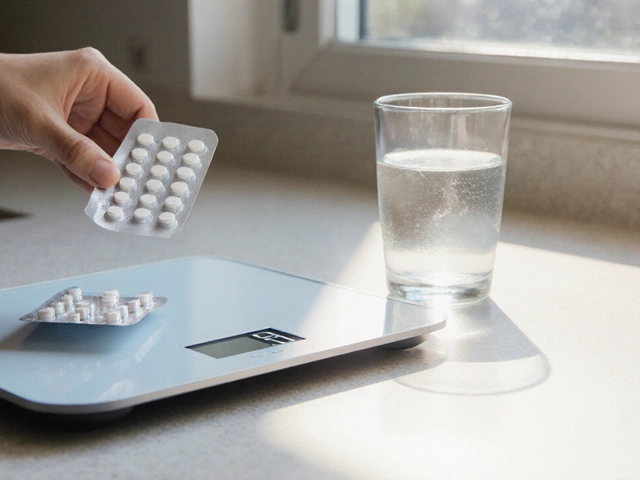Chemotherapy Recovery: Simple Steps to Feel Better Faster
Finishing a chemo round feels like crossing a finish line, but the real work starts afterward. Your body has just fought hard, and now it needs help repairing itself. Below are down‑to‑earth tips that actually work, no fluff, no jargon.
Managing Common Side Effects
Most people notice fatigue, nausea, sore mouth, or low blood counts. The key is to treat each symptom before it snowballs.
- Fatigue: Rest when you feel it, but add short walks (5‑10 minutes) a few times a day. Light movement wakes up muscles and improves circulation without draining energy.
- Nausea: Keep ginger tea or mint candies handy. Eat small, bland meals – think crackers, plain rice, or boiled potatoes – every 2‑3 hours. Avoid strong smells that trigger queasiness.
- Mouth sores: Rinse with warm salt water (½ tsp salt in 8 oz water) after meals. Choose soft foods like smoothies, oatmeal, or mashed veggies to reduce irritation.
- Low blood counts: Ask your doctor about a short course of growth‑factor injections if counts stay low. Meanwhile, boost iron‑rich foods (spinach, lentils) and stay hydrated to help the marrow recover.
Track these symptoms in a simple notebook or phone note. Seeing patterns makes it easier to tell your doctor when something needs more attention.
Everyday Habits That Speed Up Healing
Recovery isn’t just about tackling side effects; it’s also about creating an environment where cells can rebuild.
Nutrition: Aim for a colorful plate – proteins (fish, eggs, beans), healthy fats (olive oil, nuts), and plenty of fruits/veg. Protein is the building block for tissue repair, while antioxidants fight lingering free radicals from chemo.
Hydration: Aim for 8‑10 glasses of water daily. Herbal teas count, but limit sugary drinks that can spike blood sugar and increase inflammation.
Sleep: Quality sleep fuels the immune system. Keep the bedroom cool, dim, and free of screens an hour before bed. If you can’t fall asleep, try gentle breathing or a short meditation.
Gentle exercise: After the first few weeks, add light stretching or yoga. It helps lymph flow, reduces stiffness, and lifts mood. Listen to your body – if you’re sore, swap a session for a relaxing bath.
Stress control: Stress hormones can delay healing. Simple practices like 5‑minute gratitude journals, listening to calming music, or chatting with a friend keep the mind steady.
Finally, keep regular follow‑up appointments. Blood work lets your doctor see how the marrow rebounds, and any new symptoms can be caught early.
Recovering from chemotherapy is a marathon, not a sprint. By handling side effects promptly and building supportive daily habits, you give your body the best shot at bouncing back stronger. Remember, every tiny positive step adds up – stay patient, stay consistent, and you’ll see progress.

Can the Body Fully Heal After Chemotherapy?
Chemotherapy is a prevalent treatment for cancer that comes with a range of side effects, such as fatigue, nausea, and more lasting impacts on the body. This article explores whether the human body can completely recover from these effects. It will discuss both the short and long-term impacts chemotherapy has on the body and what patients might expect in their recovery journey. Moreover, it will provide insights and tips to aid recovery.

Ayurvedic Medicine: What Is It Really For?
Jun, 12 2025



